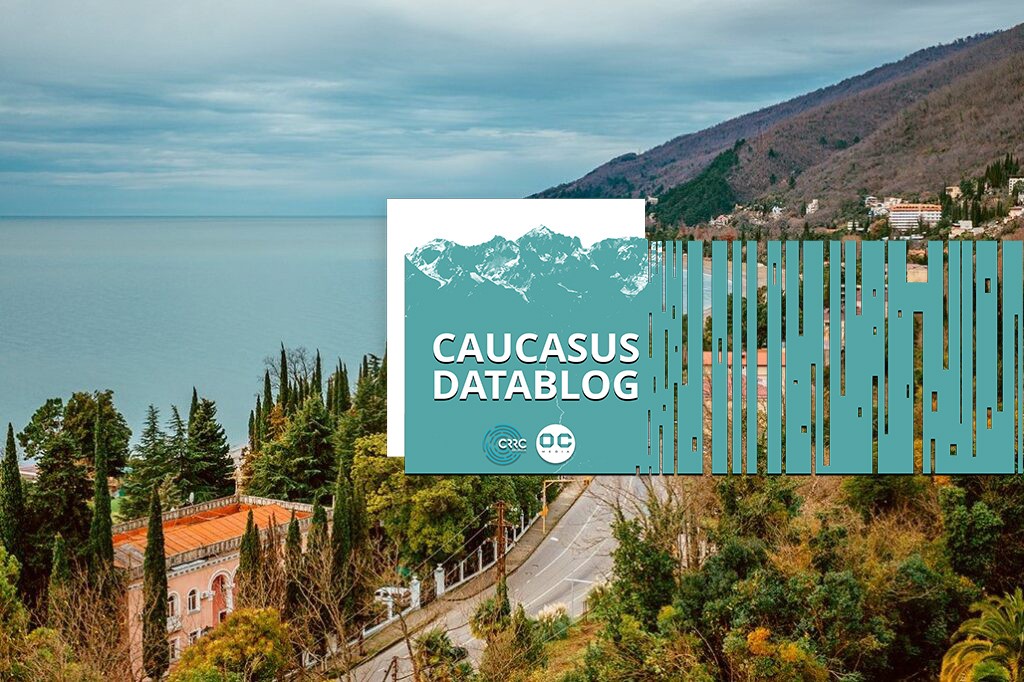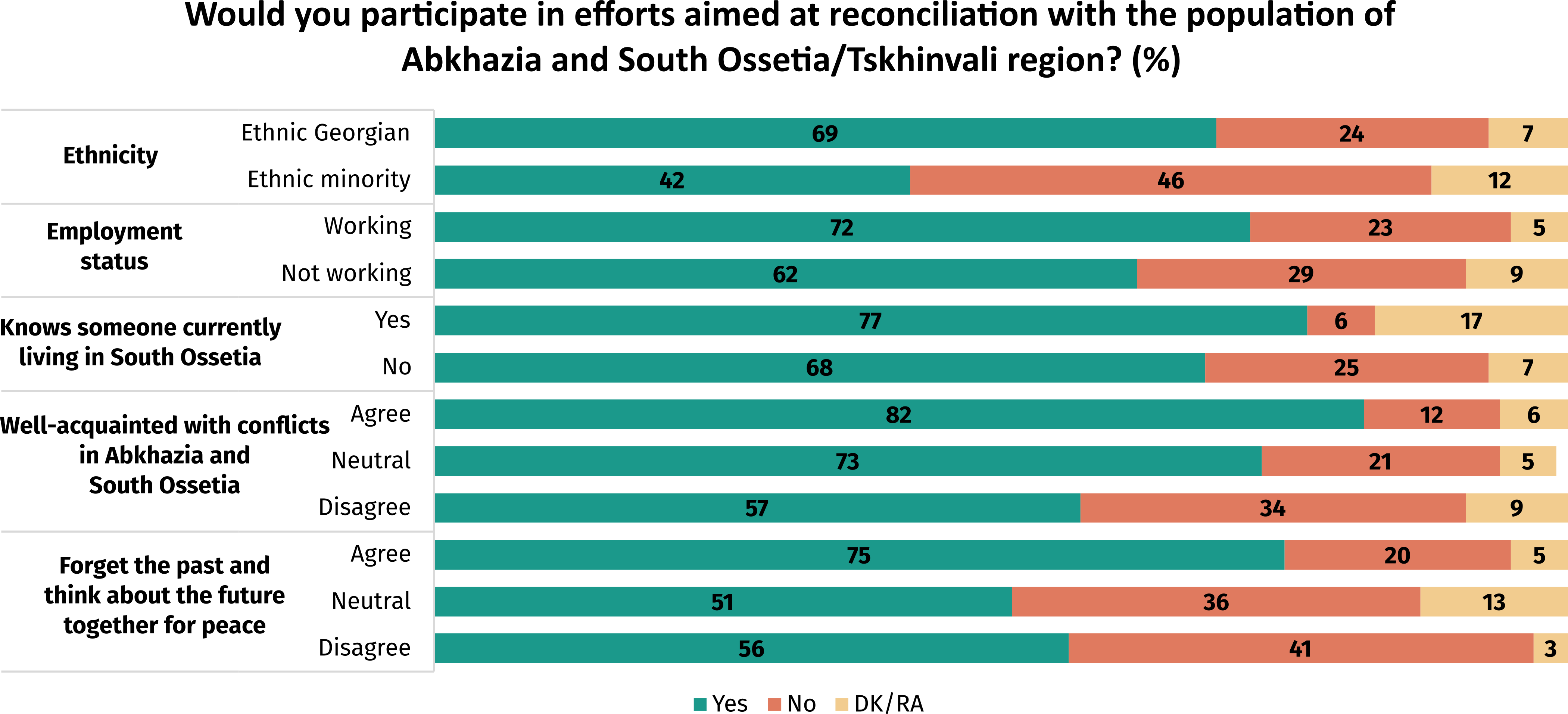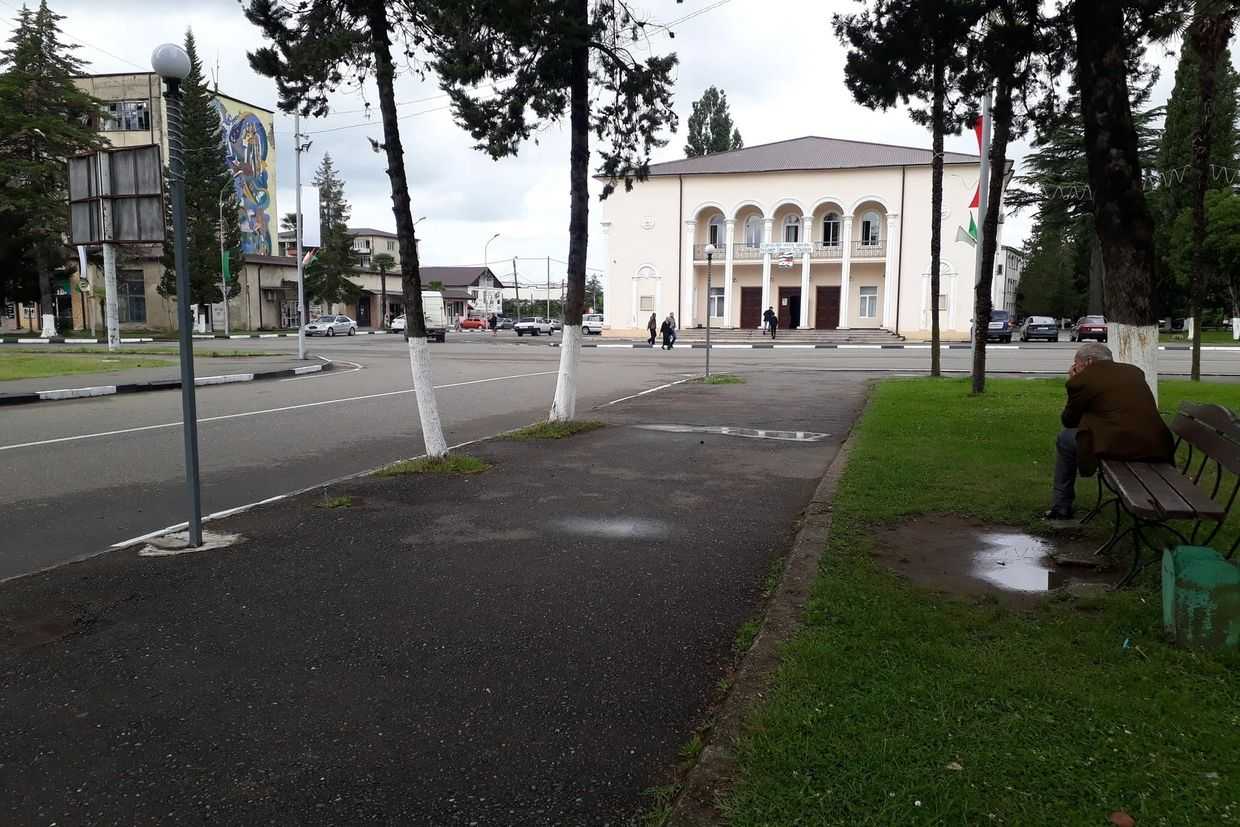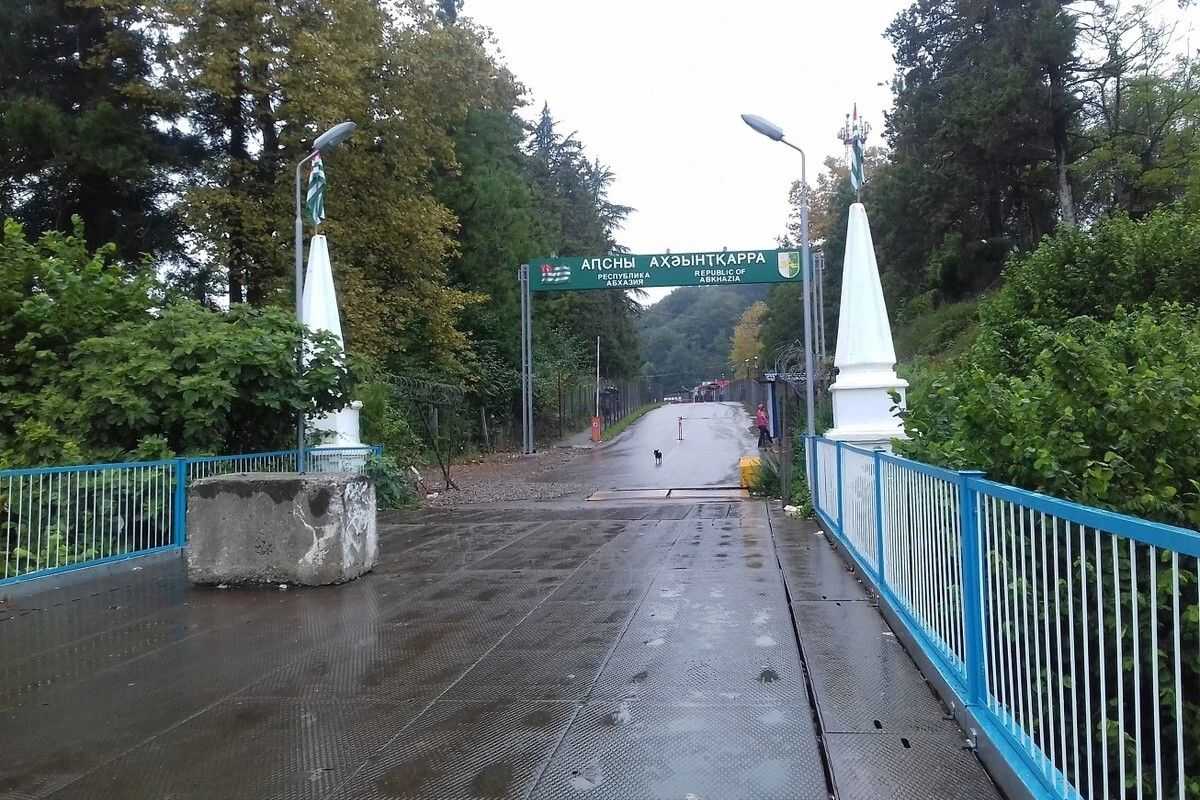
While the war in Ukraine has raised questions abroad about a potential outbreak of hostilities in Georgia, data shows that Georgians are against any military solution to the conflicts in Abkhazia and South Ossetia.
Russia’s war on Ukraine has raised fears in Abkhazia and South Ossetia that military aggression might be expected from Georgia. As Russia mobilised its military along Ukraine’s borders, the de facto authorities in Abkhazia declared military readiness to avoid ‘possible provocation from Georgian authorities’, while the de facto authorities in South Ossetia ordered an examination of its troops.
Despite sponsored videos attempting to provoke this type of response in Georgia, as well as Western commentators questioning whether Georgia might attempt a military response, Georgian authorities have not hinted at the prospect of any military incursion in the two regions amidst the war in Ukraine. Government affiliated media have also not made any argument for doing so.
Moreover, Georgia’s State Strategy on Occupied Territories rejects the pursuit of a military solution altogether and aims to achieve the ‘full de-occupation’ of Abkhazia and South Ossetia through peaceful means.
Recently released data from the CRRC Georgia and Caucasian House Survey on Youth Civic and Political Engagement and Participation in Peacebuilding shows that young people in Georgia support this policy approach.
The survey was administered in the summer of 2021 and interviewed 1,116 Georgians between the ages of 18–29.
The survey asked whether the conflicts in Abkhazia and South Ossetia should be resolved by the use of force or through negotiations.
The overwhelming majority (95%) of young Georgians said that they supported negotiations rather than the use of force. Only 2% said that the conflicts should be resolved by force, while 3% had no opinion.
The majority of young people in Georgia were in favour of reconciliation and forgetting about past hostilities. Almost two-thirds (62%) agreed that it was necessary to forget the past and think about the future together to have peace with Abkhazians and Ossetians. About the same share (64%) said that ordinary people currently living in Abkhazia and South Ossetia were as much victims of the conflicts as Georgians.
At the same time, a majority of young Georgians disagreed (60%) with the idea that ‘it is important for us to be the first to apologise to Abkhazians and Ossetians for war crimes committed by the Georgian side’. A fifth (19%) neither agreed nor disagreed, while 11% agreed with the idea. A further 10% were uncertain or refused to answer the question.
Aside from supporting the peaceful resolution of the conflict, a majority of young Georgians (66%) reported they were willing to participate in reconciliation efforts. Ethnic Georgians (69%) were more willing to participate in efforts aimed at reconciliation compared to ethnic minorities (42%). So were those who were working (72%) compared to respondents (62%) who were not.
Young Georgians who said they knew someone currently living in South Ossetia were more likely to be willing to participate in reconciliation efforts (77%) compared to those who had no acquaintances there (68%). Importantly, having acquaintances in Abkhazia was not associated with willingness to participate in reconciliation efforts.
Young Georgians who claimed that they were well-informed about the conflicts were more likely to express a willingness to participate in reconciliation (82%), than those with lower levels of awareness (57%).
Those who agreed that Georgians should forget about the past and think about the future with Abkhazians and Ossetians were also more predisposed towards participation in reconciliation efforts (75%) compared to those who were against forgetting (56%). Still, the majority in both groups were willing to take part in peacebuilding activities.

The results of the CRRC Georgia/Caucasian House study reflect the generally peaceful attitudes of Georgians towards Abkhazia and South Ossetia.
An earlier study conducted in April 2020 for Conciliation Resources showed that a majority (71%) of Georgians regardless of age believed that the Georgian government was in a position to step up and improve relations between Georgian and Abkhazian societies.
A large majority of the public supported direct dialogue with the de facto authorities in Abkhazia (70%). The next most commonly supported step was the identification of common interests and the development of joint solutions to problems (48%).
In the light of Russia’s war on Ukraine, as well as the 2020 war in Nagorno-Karabakh, fears arose around whether Georgia might pursue a military escalation towards Abkhazia and South Ossetia. Nonetheless, neither evidence on the ground, nor public opinion in Georgia show an appetite for such a pursuit.
The Georgian public, including young people, is overwhelmingly against forced re-incorporation of Abkhazia and South Ossetia into Georgia, and most support the improvement of relations with the societies there.
While the data presented here was collected prior to Russia’s incursion into Ukraine, and public opinion can shift drastically amidst changing political situations, this data is a good reminder that an overwhelming majority of Georgians, including its youth, look for peace, not war.
Note: The data used in the article can be found on CRRC’s online data analysis tool.
All views, place names, and terminology used in this article are the words of the authors alone, and may not necessarily reflect the views of OC Media’s editorial board, CRRC Georgia, Caucasian House, or any related entity.
The analysis was carried out using multinomial regression. The regression modelling the willingness to participate in the reconciliation efforts included the following variables: sex (male or female), age group (18–23, 24-29), ethnic group (ethnic Georgian or ethnic minority), settlement type (capital, other urban, rural), educational attainment (secondary or lower education, or higher than secondary education), employment situation (working or not), experience of job loss due to pandemic (lost job or not), current perceived economic rung (lower, medium, higher), IDP status (forced to move due to conflicts since 1989 or not), party affiliation (Governing party, opposition, no party, don’t know/refuse to answer), and durable goods index. Non-demographic variables tested as part of the analysis included interest in current interest in Abkhazia and South Ossetia (interested, neutral, not interested), interest in Abkhazia’s and South Ossetia’s politics (interested, neutral, not interested), having acquaintances in Abkhazia and/or South Ossetia (having, not having), acquaintance with Abkhazia’s and South Ossetia’s conflicts (agree, neutral, disagree), attitude towards the need of forgetting the past and thinking about the future together for peace (agree, neutral, disagree), attitude towards people in Abkhazia and South Ossetia being as much victims of conflicts as Georgians (agree, neutral, disagree).








